5 Best Tips for Storing Dried Herbs
Herbs are so easy to grow, add so much flavor to everyday meals, and can be very easy to preserve for your spice cabinet. But are you using these five tips for storing dried herbs to keep your herbs safe for long-term food storage?
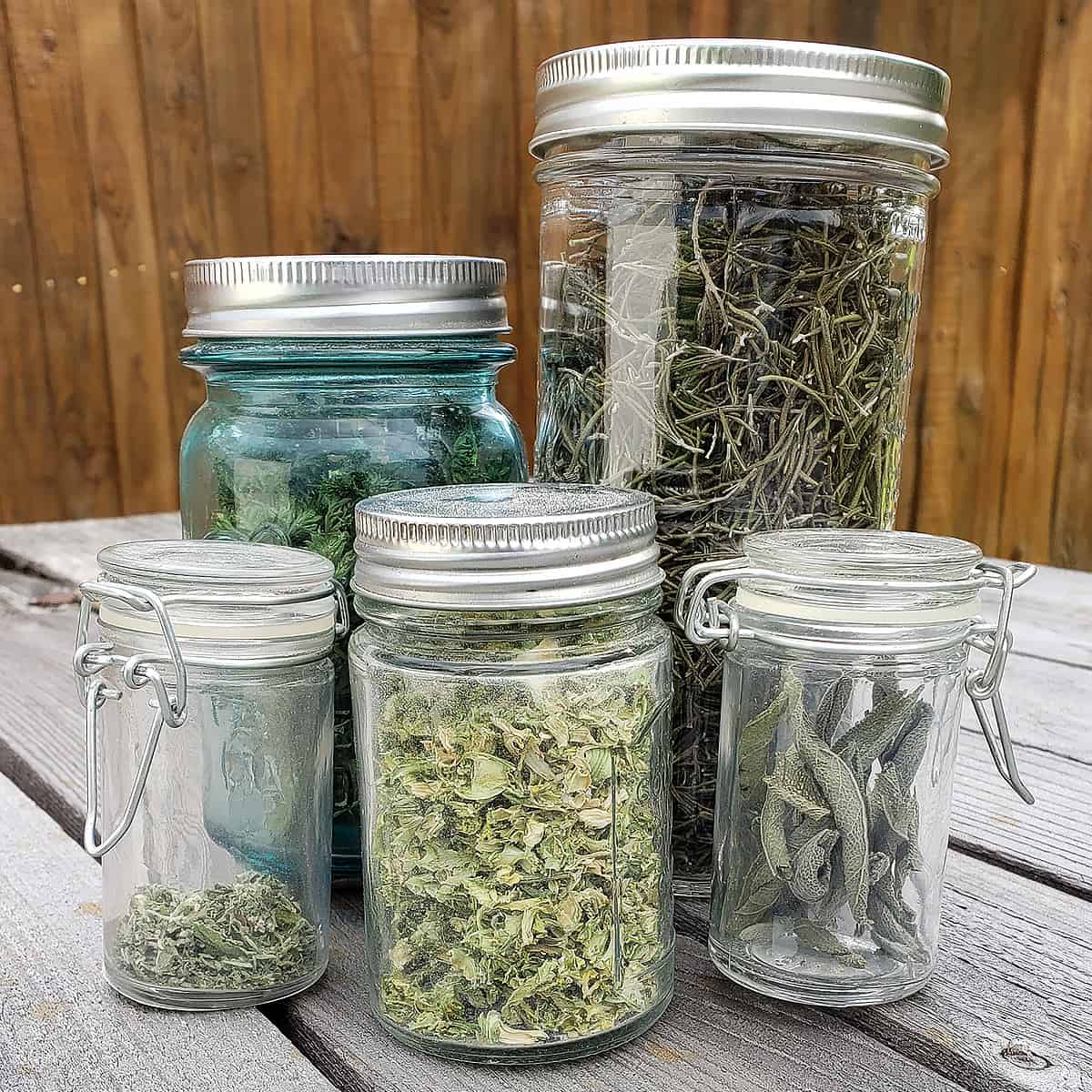
5 Tips for Storing Dried Herbs
1. Dry Herbs Low and Slow
Yes, this is an actual step in how to dry herbs, but it’s integral in storing later.
Herbs contain an abundance of nutrients that are not happy with heat. In fact, heat can break down not only the nutrients but also the color of your herbs.
So choose to dehydrate at 95F, hang dry, tray dry, or one of these options for drying without using much heat.
While drying in the oven is an option, I really don’t recommend drying in the microwave.
Tips for drying in the oven
- Set your oven at it’s lowest temperature, then crack the door with a wooden spoon. Please make sure no children or those with mobility issues will be impacted by an open oven door.
- Set your herbs on drying racks, turn on your oven light and allow to sit overnight.
- Use your pilot light only.
Tips for Air Drying
- Bundle up heartier herbs and hang in a cool dark place with air movement.
- For more delicate herbs like parsley, basil, and mints, you can place inside of a paper bag. Make sure to leave a few holes in the sides of the bags to allow air flow. The bag will help catch any leaves and/or seeds from dropping away.
- Drying in paper bags can help protect from dust if you live in a particularly dusty area.
- Place the more delicate herb leaves on paper towels, and layer up to five layers to dry
2. Store Dried Herbs Whole
We are so used to purchasing herbs as crushed in the store, that we are storing them that way, even when we grow and dry them ourselves. But as with spices, herbs can lose their flavor faster with more surface exposure. So dry your herbs, but store them whole in vacuum sealed jars. Crush only what you’ll need for the next few days or weeks, depending on how fast you go through that particular herb.
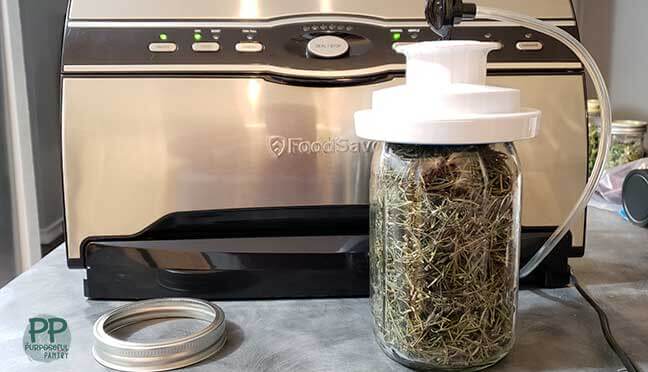
3. Herbs Can Last Longer than Six Months
Are you throwing out your dried herbs too soon?
The industry puts an expiration date of six months on dried herbs. But how do you know when to actually start that six-month clock? From the moment that the herb was harvested (which may have been a year or two ago), or the moment you purchased it?
TIP ► Test your herb freshness:
Crush some of your herb between your fingers or in the palm of your hand. If you can…
- easily identify the herb smell, it’s still worth using!
- mostly identify the herb, you can still use it by crushing it more, and doubling the amount you use in the dish to bring the same flavor.
- barely make out the scent or if it is non-existent, you may be better off composting it, and getting more.
4. Store Herbs in the Dark
You know the adage of good food storage – store everything in a cool, dark place. But what if you don’t have a great place to store your herbs in the dark? You only have the spice rack that sits on your counter – worse, yet, they are in glass jars that expose them to all that light!
There are some options:
- Rotate, rotate, rotate.
- Store your herbs in vacuum sealed jars in a dark place, whenever possible. I keep glass jars in my spice rack that are rotated through often with a smaller amount of often used herbs on the spice rack. Everything else is tucked away in the dark for storage.
- Convert a drawer – it’s hard, especially when you have a small space. But if you can convert one kitchen drawer and put small jars with labels on top, or lay larger, space jars on their side, it will help.
- Switch out the jars for tin or stainless steel containers. There are metal jars on the market now that you can switch your jars with and keep them in the dark. This brand has a clear lid, but by using their dark labels, or creating dark labels of your own, you can block that light source. These are the types of jars I used to have on the side of my fridge to house all of my spices until I switched to a regular rack a few months ago. I used the tin containers for 8 or more years.
- Paint your jars. Using paint meant for glass (and even adding a finishing coat to help protect the paint), you can paint the outside of your glass jars any color available, and have something that matches your decor as well as protects your herbs from light.
- Use amber mason jars to block light and store, without having to worry about painting.
5. Do Not Store in Plastic Bags.
But I’m giving you permission to break this rule in two ways.
I know that we all love zip-top bags for all sorts of food storage. Over time, however, those bags do allow air to permeate the bag. This happens not only through the plastic, but also through the zipper.
Rule Breaker #1
However, I DO store portions in zip-top bags that then go into a larger glass container that is vacuum sealed. I am accident-prone, so storing first in smaller portions, then in a larger container, I can protect my food. I do this for herbs that I am storing for longer than two months and have large quantities of.
Rule Breaker #2
You can also use mylar bags or food storage vacuum seal bags to vacuum seal your herbs for long-term. Just don’t use the mylar bags that have a zippered seal.
Many herbs can last up to a year or more, so long-term storage does have a more finite label when it comes to herbs. Don’t short-change that time by using inferior storage containers.
How do you Store Dried Herbs?
I’d love to hear more about how you store herbs in your home! Please leave a comment below on tips you have for others!


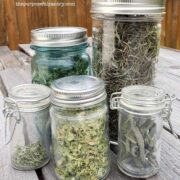
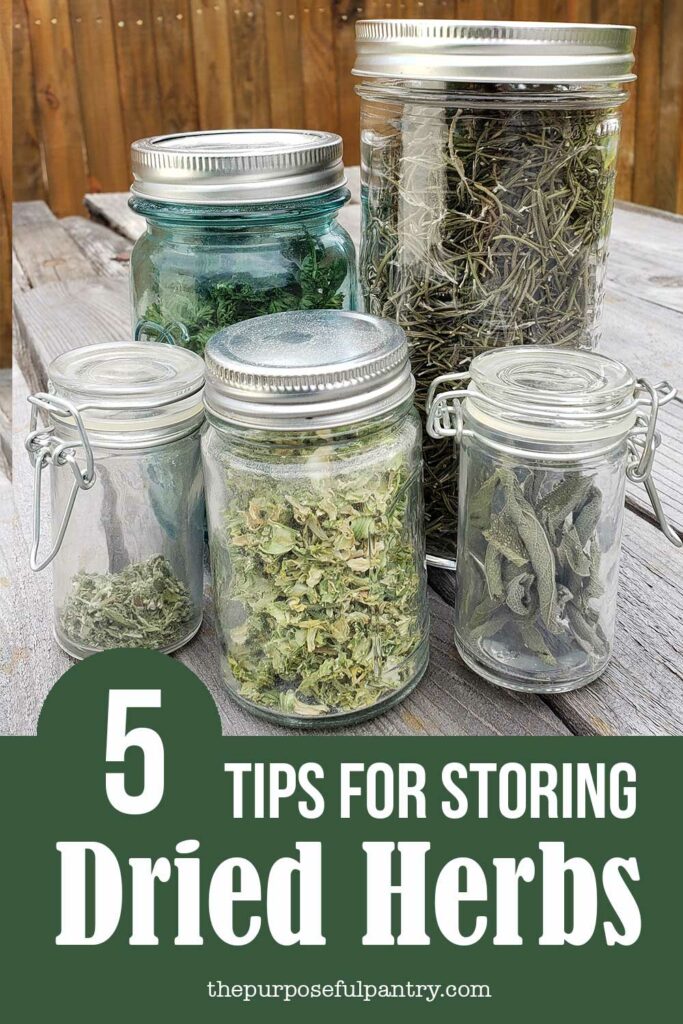
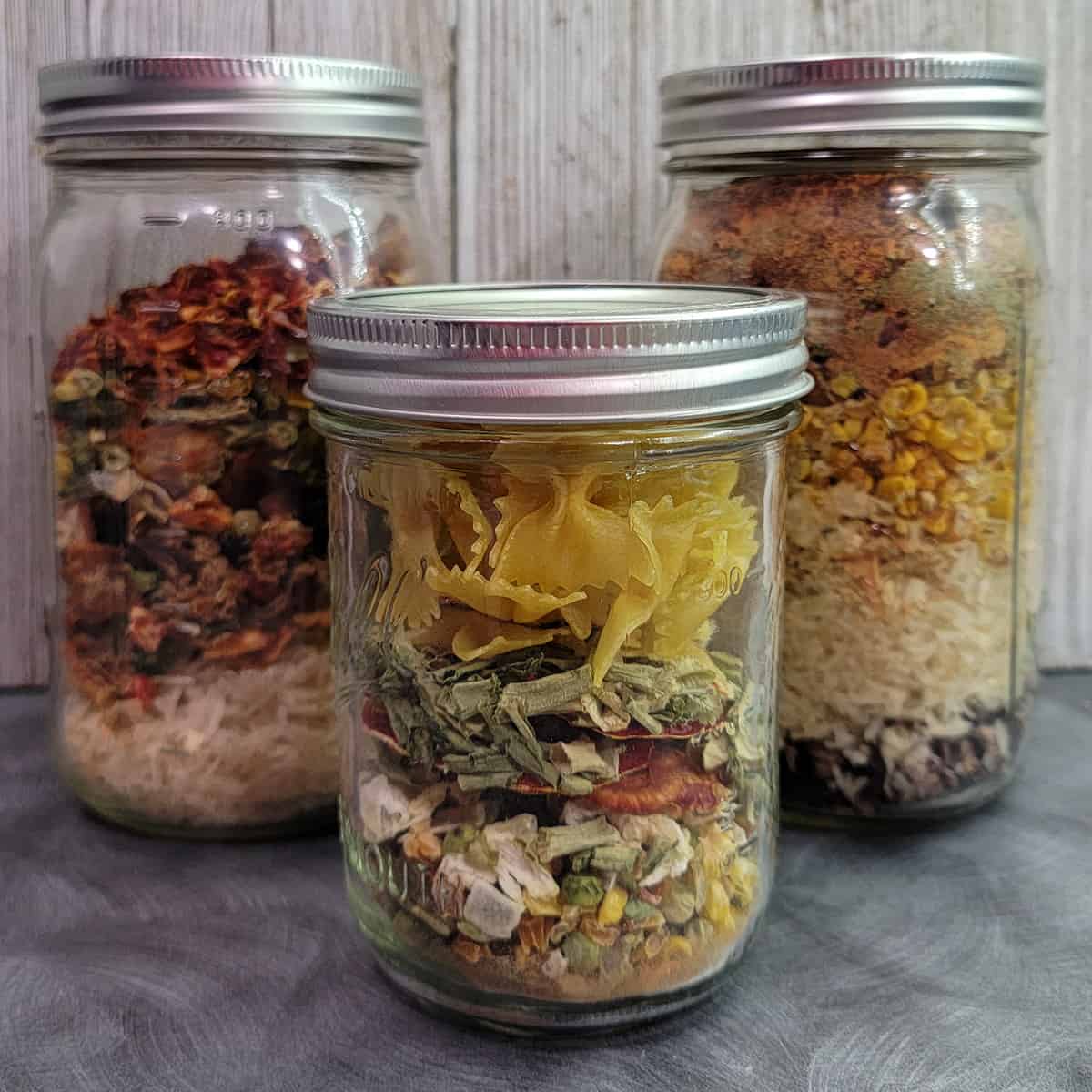
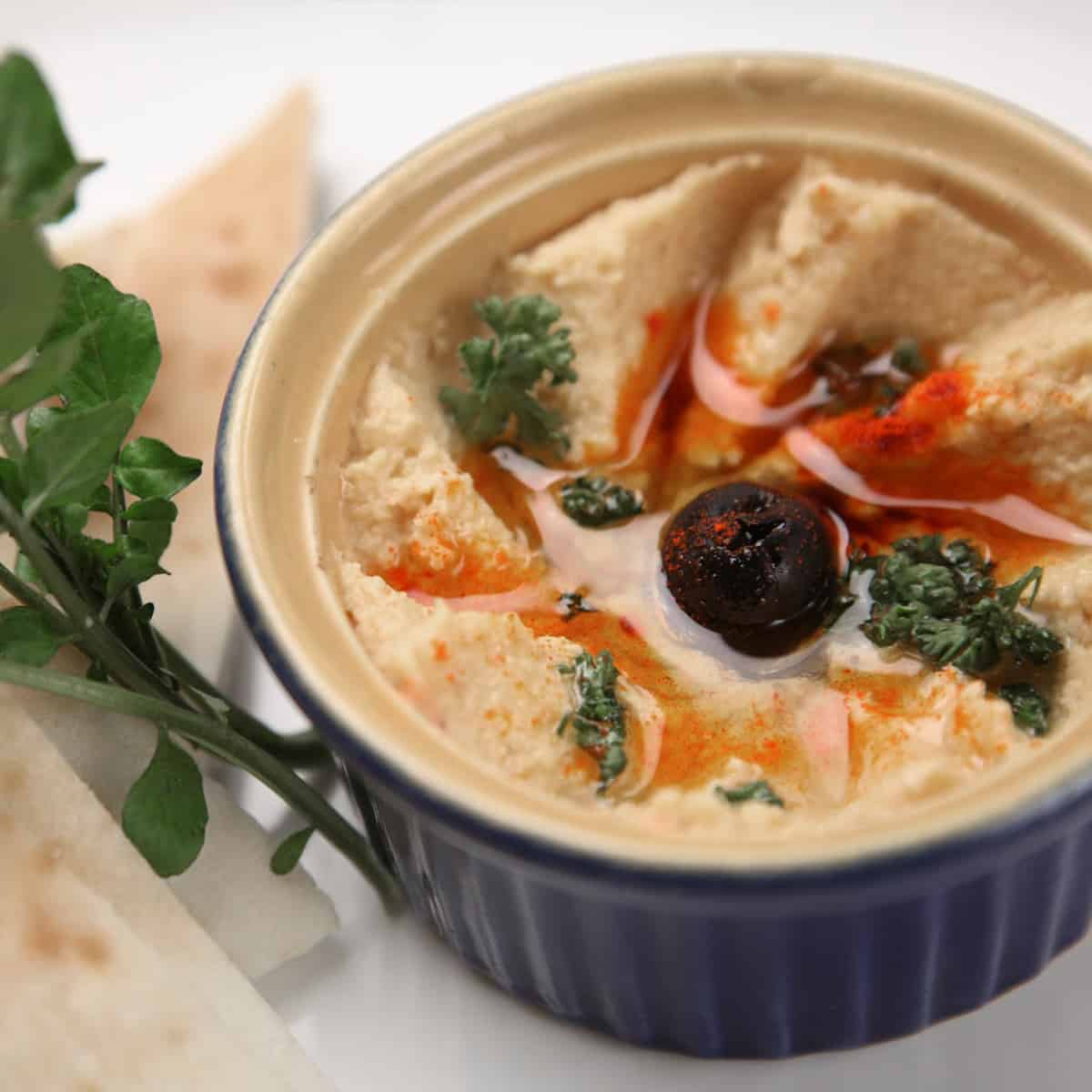
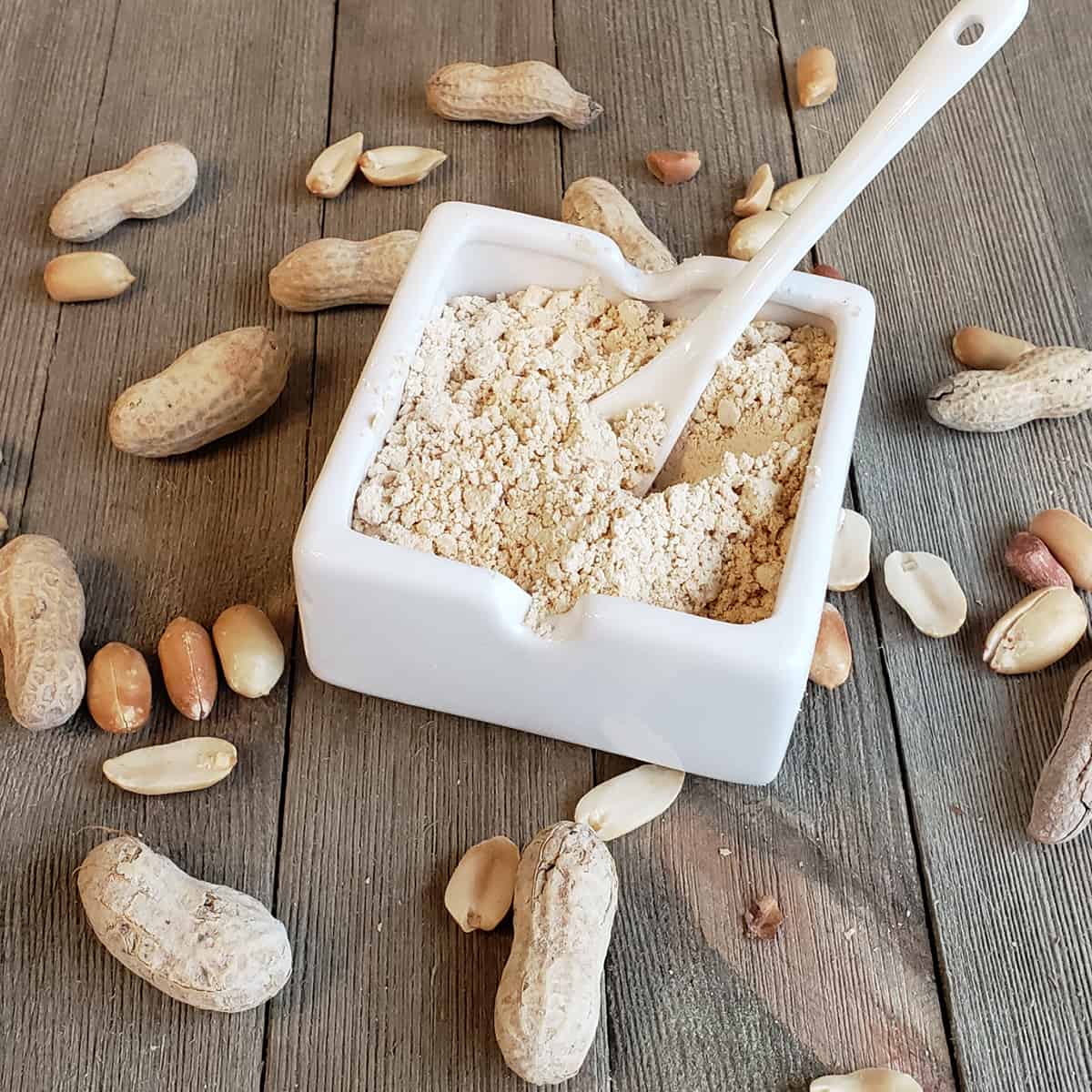
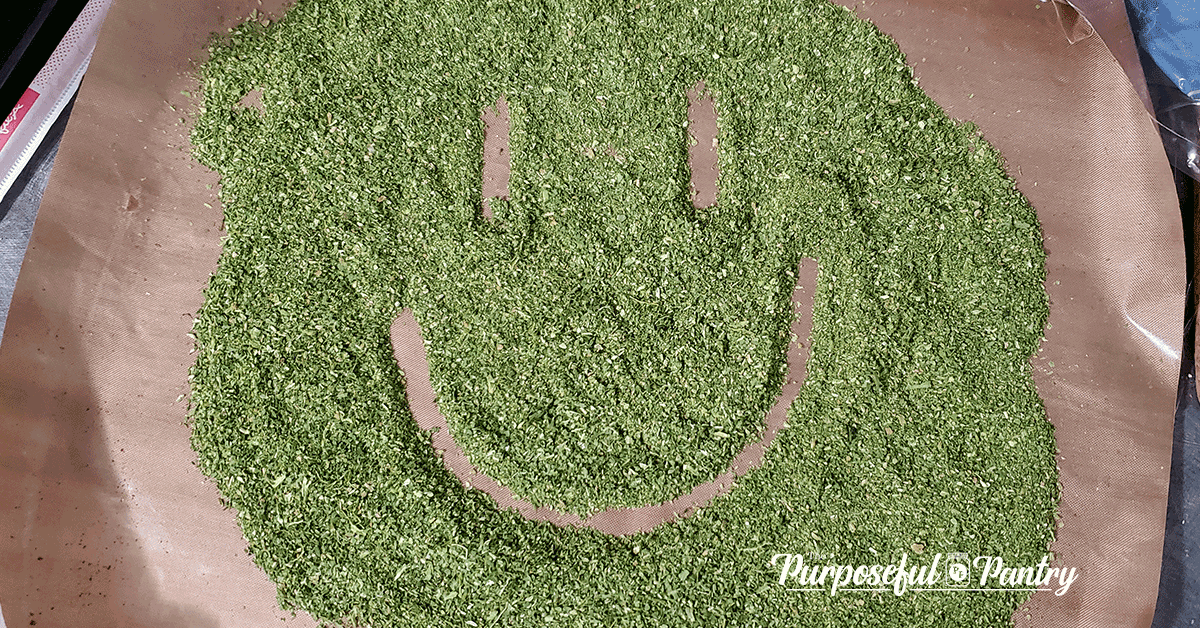
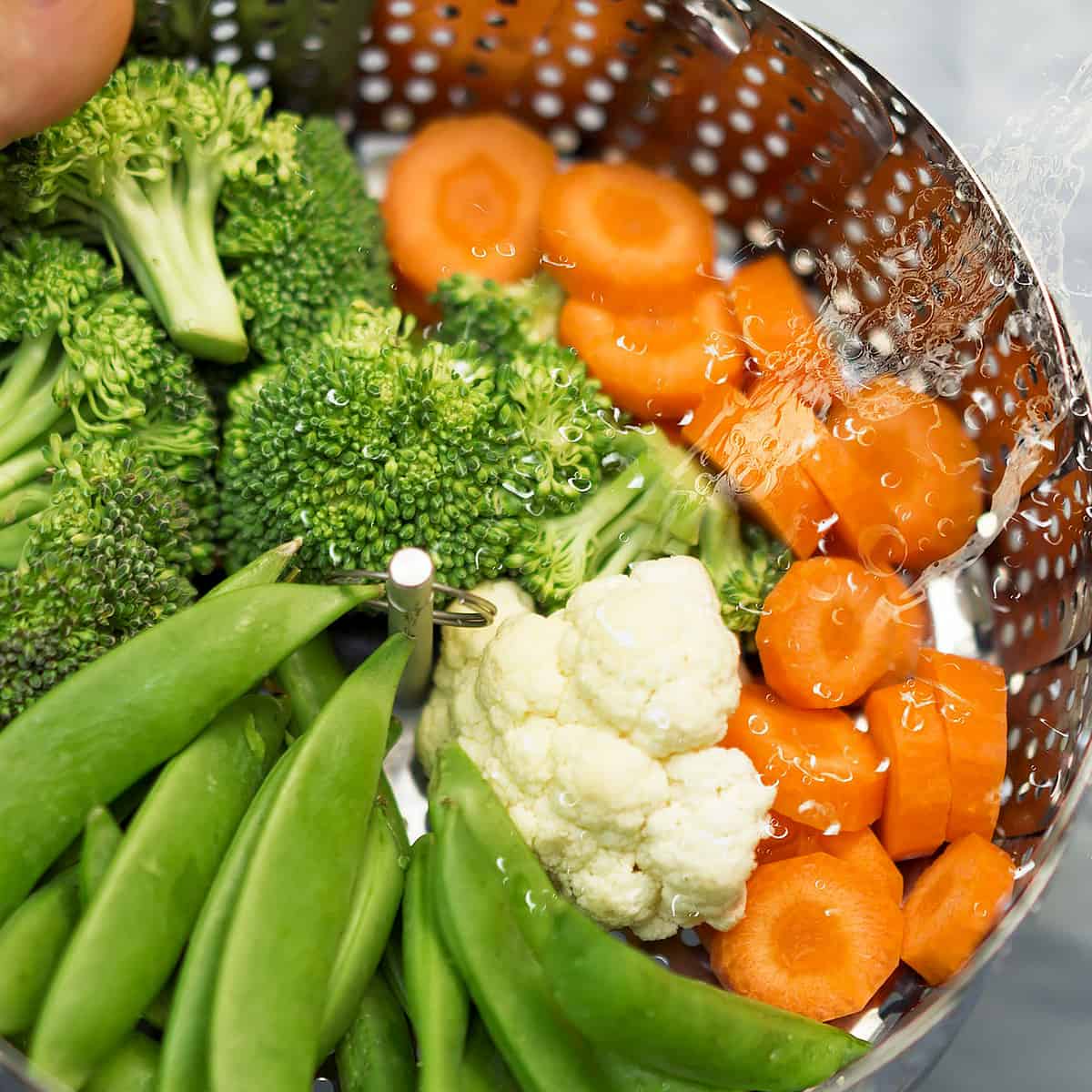
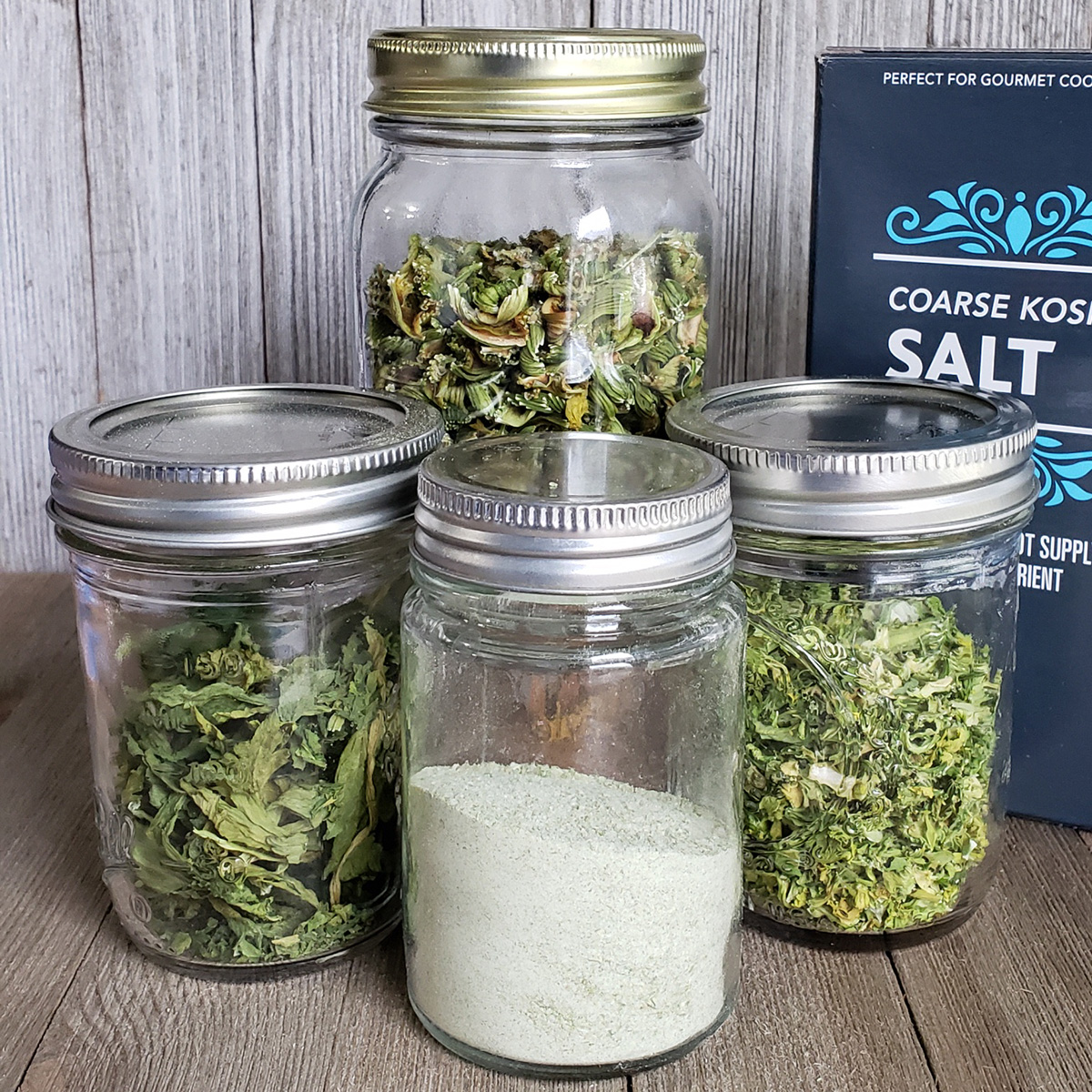
Awesome article! I love the part about the amber jars too. Excellent suggestion. Do you by chance have any recommendations for a SERIOUS overabundance of lemon balm, tarragon or oregano? I already have a quart of each dehydrated. None of my family or friends use that many herbs (just little ole me). Visiting from Simple Homestead Blog Hop.
They will all freeze well fresh, and tarragon makes a great compound butter. I can’t get enough oregano, so a quart wouldn’t be enough for me 😀 Nerdy Farmwife did a great lemon balm roundup on how else you might be able to use it: https://thenerdyfarmwife.com/12-things-to-do-with-lemon-balm/
Oh, for the oregano, you can consider doing Christmas gifts of different herb seasoning blends.